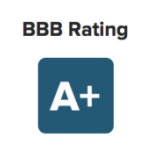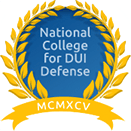Cranford NJ Failure to Make Lawful Disposition Attorneys
The offense known as failure to make lawful disposition is contained at N.J.S.A. 2C:35-10(c). Although this violation can certainly be the only one written by a police officer, our attorneys overwhelming encounter it in tandem with a charge for possession of marijuana, cocaine, heroin or another form of controlled dangerous substance (“cds”). Failure to make lawful disposition is a disorderly persons offense which is handled in municipal court, for example, in Cranford, Roselle, Hillside, Scotch Plains or Union Township. Our law firm, The Law Offices of Jonathan F. Marshall, employs lawyers who have over 100 years of combined experience defending a wide array of drug charges. Obtaining skilled legal representation is key to effectively defending this offense in our view. Accordingly, if you have been charged with failure to make lawful disposition of drugs, it is in your best interests to speak to an attorney on our defense team. Our Union NJ Office can be reached 24/7 for free consultation by calling 908-272-1700.
Failure to Make Lawful Disposition of CDS/Drugs in Union County
As previously stated, the New Jersey Failure to Make Lawful Disposition Law is contained at subsection (c) of N.J.S.A. 2C:35-10. This statute provides that:
c. Any person who knowingly obtains or possesses a controlled dangerous substance or controlled substance analog in violation of subsection a. of this section and who fails to voluntarily deliver the substance to the nearest law enforcement officer is guilty of a disorderly persons offense. Nothing in this subsection shall be construed to preclude a prosecution or conviction for any other offense defined in this title or any other statute.
This Offense Explained. N.J.S.A. 2C:35-10(c) is directed at situations where an individual, while in the presence of police, fail to voluntarily deliver CDS/Drugs that is in their possession. If police have to engage in investigation to uncover drugs when there was an opportunity for the accused to voluntarily hand them over, a 2C:35-10(c) charge may be filed. In order to prove an offense for failure to make lawful disposition under N.J.S.A. 2C:35-10(c), the state must prove two things beyond reasonable doubt. First, the defendant must illegally possess CDS. Second, he/she must have failed to voluntarily deliver the substance to the nearest law enforcement officer. This charge, as previously stated, usually arises following a search and seizure by police. The attorneys at the Law Offices of Jonathan F. Marshall are experienced in the intricacies of search and seizure laws.
What are the Penalties for Failure to Make Lawful Disposition? If you or a loved one is convicted for failure to make lawful disposition pursuant to N.J.S.A. 2C:35-10(c), the sentencing judge has the ability to impose a range of penalties. What you should know in this regard is that, while this is a disorderly persons offense, a conviction will result in a 2C record. The conviction will be revealed anytime someone has occasion to perform a criminal background check. In addition, you will be subject to Failure to make lawful disposition is a disorderly persons offense in Union County. This means that a conviction could result in six (6) months in prison and a $1,000 fine. Moreover, N.J.S.A. 2C:35-10(c) allows the court to impose a period of license suspension up to six (6) months.
Clark Township Failure to Make Lawful Disposition Attorney
Defending your rights in Clark Township or another municipal court in a drug case, for example, in a failure to make lawful disposition, requires the knowledge and experience of a seasoned attorney. Here at the Law Offices of Jonathan F. Marshall, our lawyers have over a century of collective experience representing clients charged with cds offenses, including failure to make lawful disposition. Our staff is composed of skilled attorneys who possess the knowledge required to defend you in Clark, Westfield, Roselle Park, Elizabeth and Plainfield. Call our criminal firm anytime of day or night at 908-272-1700 to discuss how we can help you fight a failure to make lawful disposition offense.












